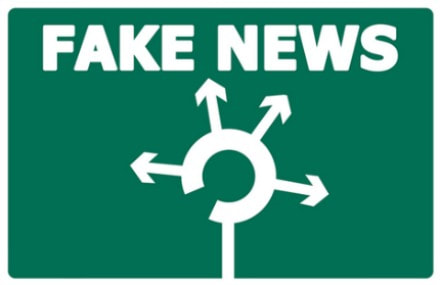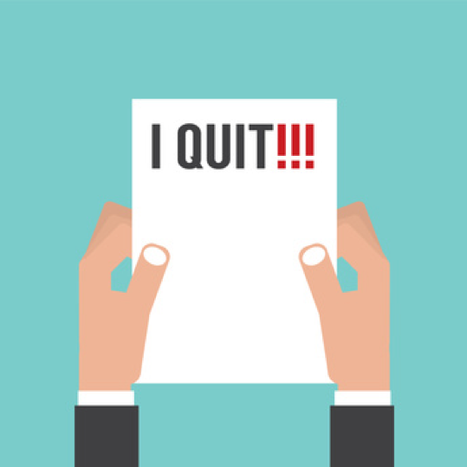 Aaarrgghhh! Sometimes you just want to rant, right? Everyone needs to blow off steam at times. (Tweet it!) Writing in The New York Times, Carl Richards, author of the book The Behavior Gap, suggests that ranting can be a good thing…”But only if you do it right. If you do it wrong, the consequences can cost you your job, your friendships or even your marriage (https://nyti.ms/2kfHQuH). To rant productively, says Richards, follow four guidelines:
Draft a conscious conversation. After your rant has cleared your head and emotions, begin to consciously consider how to raise the issue with the subject of your rant. Or, if you decide that it was as much about you as that person, put it away and move on. What’s the last thing you ranted about, and how, where, and with whom did you do it? Did it help to get it off your chest? Did you follow up with the person who upset you? To join the conversation, click "comments" above. If you would like to read more about creating a habit around masterful communication, check out our book: Be Quiet, Be Heard: The Paradox of Persuasion
2 Comments
 These days, everyone’s a critic! And research suggests we’re more likely to give credence to negative reviews than positive ones. (Tweet it!) But just how credible are those one-star slams? Online buyers, trip planners, moviegoers…we all use online reviews to help us choose. In fact, the Pew Research Center found that 82 percent of American adults say they sometimes or always read online reviews for new purchases. But while more than two-thirds of regular review readers believe they’re “generally accurate,” marketing data indicate that negative reviews in particular dramatically influence our buying behaviors. And research on the biases and demographics of online reviewers suggests our faith in reviews is misguided. Consumers, wary of “fake” 5-star reviews, value negative ones as a “window into what could go wrong,” writes Caroline Beaton in The New York Times. But the credibility of all reviews — even real ones — is questionable. A 2016 study published in The Journal of Consumer Research looked at whether online reviews reflected objective quality as rated by Consumer Reports. The researchers found very little correlation. Reviews are subjective, circumstantial, emotional and written by a tiny subset of the population (1.5 percent). Reviews can be helpful, of course, but it's wisest to look at those closest to the median. Also pay heed to facts rather than impressions. Finally, look for thorough reviews whose authors seem driven by a genuine desire to help. Have you ever written a negative review—and under what circumstances? Do you tend to read and heed negative reviews over positive ones? To join the conversation, click "comments" above. If you would like to read more about creating a habit around masterful communication, check out our book: Be Quiet, Be Heard: The Paradox of Persuasion  A new study in Science quantifies the spread of Twitter rumors. Previous research tracked rumors after specific events, like the false information that swirled around the Boston Marathon bombing. In this more wide-ranging study, a team of researchers at MIT tracked falsehoods and truths using a database of every tweet written from 2006 to 2017. Bottom line: False news moves through Twitter “farther, faster, deeper and more broadly” than the truth. (Tweet it!) As reported in The Washington Post, MIT professor Sinan Aral and colleagues observed that, “even the farthest-reaching true rumors rarely spread to more than 1,000 people. But the top 1 percent of falsehoods routinely had audiences of 1,000 to 100,000 people.” Politics got the most attention among true and false rumors, they discovered. The study authors hypothesized that falsehoods contain more novelty than truth. To that end, they measured the “information uniqueness” of rumors and discovered that false rumors were more likely to contain new, but incorrect, information. It's easier to be novel when you’re unconstrained by reality,” Aral said. Have you ever been seduced by a false Twitter rumor, or even retweeted it? Why do you think you gave it credence? To join the conversation, click "comments" above. If you would like to read more about creating a habit around masterful communication, check out our book: Be Quiet, Be Heard: The Paradox of Persuasion  Why do most people quit their jobs? More than any other reason—more so than not liking their jobs or even not liking their bosses—it’s because they feel unappreciated. (Tweet it!) According to a study by Accenture, cited by Forbes (https://bit.ly/2M0iwES), 43 percent of employees cite lack of recognition as their key reason for heading for the door. As Forbes contributor Alan Hall writes, “When your employees say to themselves and others, ‘Where’s the love?’ you’ve got a problem.” We’ve spoken for decades about the positive power of appreciation. Telling people when their efforts have made a difference, and giving them the kudos they deserve is a powerful motivator. But beyond this, not doing so is a powerful deterrent to job satisfaction. Bottom line: You simply cannot overestimate the power of genuine and timely praise, recognition and gratitude. Have you ever quit a job or been tempted to do so because you felt under-appreciated? How do you make those around you feel appreciated? To join the conversation, click "comments" above. If you would like to read more about creating a habit around masterful communication, check out our book: Be Quiet, Be Heard: The Paradox of Persuasion  A recent meta-analysis in the Personality and Social Psychology Bulletin analyzed 26 studies on work and friendship, concluding that teams made up of friends tended to perform better than teams made up of strangers. (Tweet it!) That said, workplace friendships can be tricky to navigate. Jessica Methot, associate professor of human resource management at Rutgers University, has long studied such relationships. Her 2015 study also confirmed that work friendships are valuable, and that employees who experience “multiplex relationships” (i.e. genuine friendships with direct co-workers) receive higher performance reviews. But these same employees also tended to report more emotional exhaustion. As Melissa Dahl, writing in the New York Times explained, “You’re playing two roles at once: friend and colleague. Friends unconditionally support each other, but colleagues can’t always do that, especially when their own reputation is at stake. It can be draining to have to decide which role to play, and when.” Work advice columnist Alison Green, who answers questions about all sorts of uncomfortable office issues on her site Ask a Manager, says that if you are in an awkward situation with a work friend you are (gulp!) going to have to talk to them. It sounds simple, but we know how resistant many people are to raising delicate issues. Approached the right way, however, conscious conversations will strengthen bonds. Choose a time when you are not angry or tired, edit out accusative language, and work together to co-create a solution. Do you have direct co-workers who are also close friends? How well do you think you communicate about sensitive work-related matters—and if you do it well, what is your secret? To join the conversation, click "comments" above. If you would like to read more about creating a habit around masterful communication, check out our book: Be Quiet, Be Heard: The Paradox of Persuasion |
Archives
July 2024
Categories
All
|
|
Glaser & Associates, Inc.
Executive Offices 1740 Craigmont Avenue, Eugene, OR 97405 541-343-7575 | 800-980-0321 [email protected] |
© 2019 Glaser & Associates. All Rights Reserved.


 RSS Feed
RSS Feed